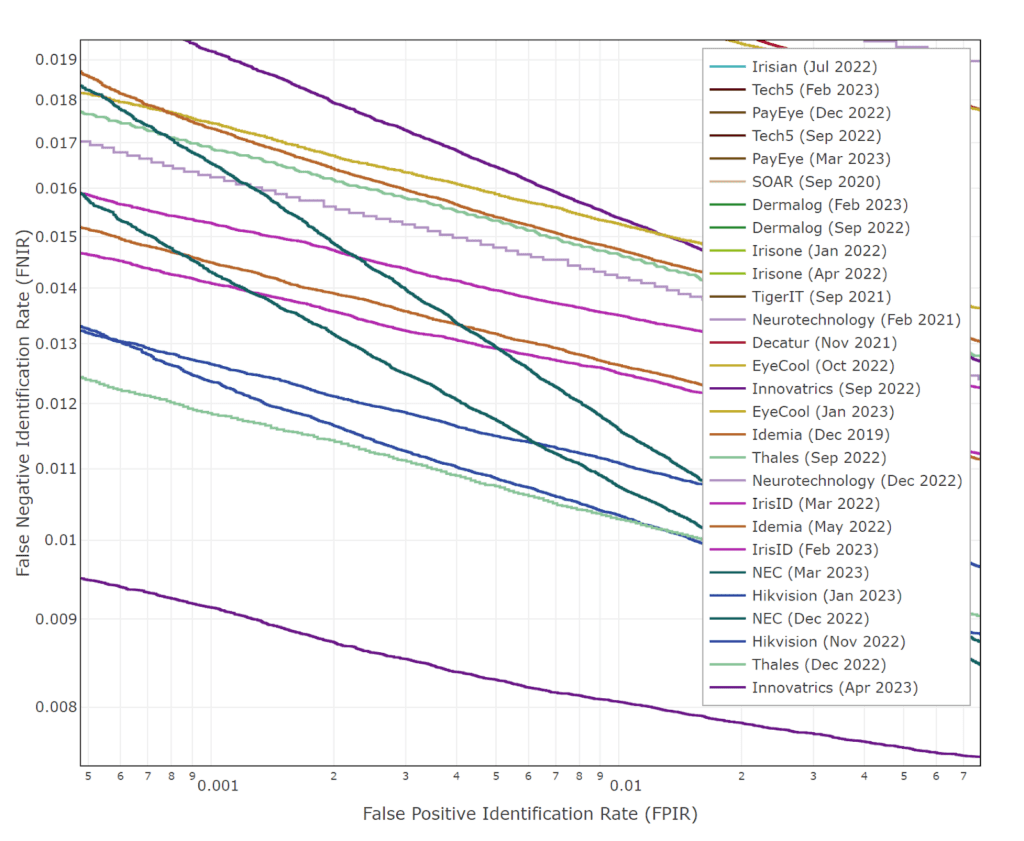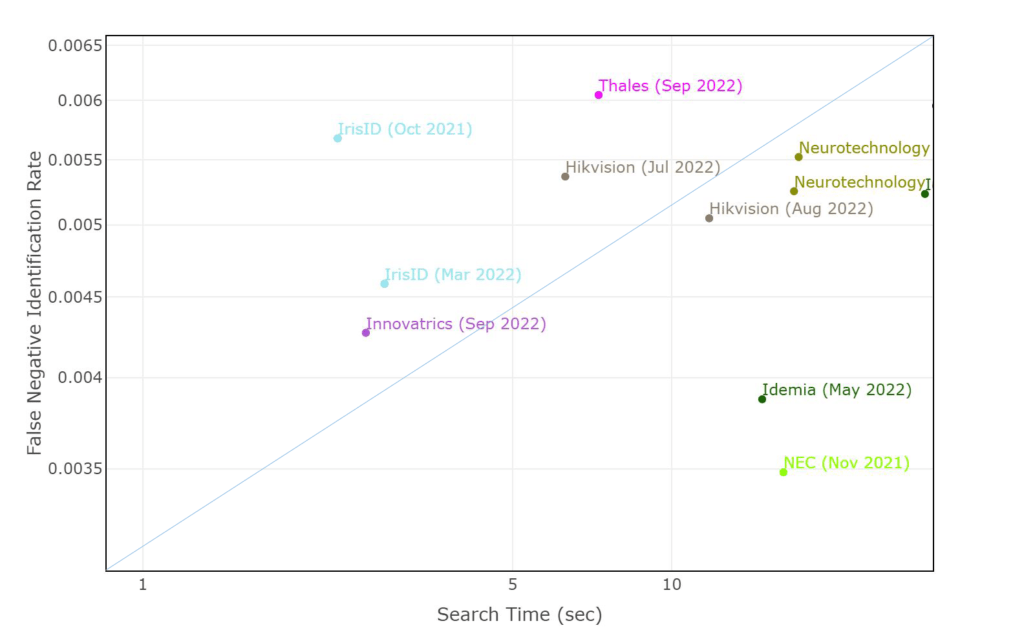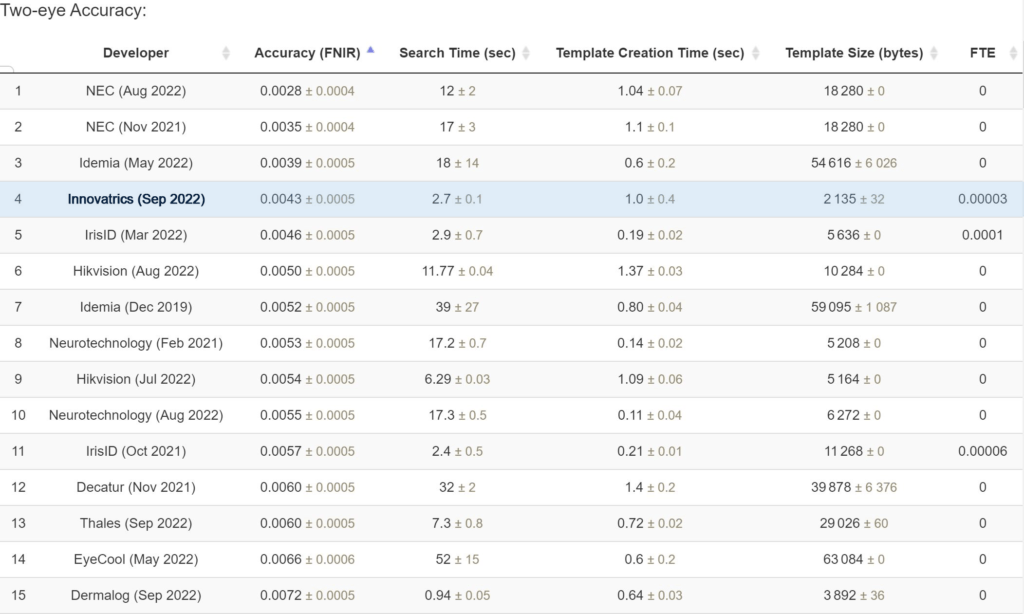Top Spots in Iris Recognition Algorithms Belong to Innovatrics
The IREX 10: Identification Track assesses iris recognition performance for identification (a.k.a one-to-many) applications. Most flagship deployments of iris recognition operate in identification mode, providing services ranging from prison management, border security, expedited processing, and distribution of resources. Administered at the Image Group’s Biometrics Research Lab (BRL), developers submit their iris recognition software for testing over datasets sequestered at NIST. As an ongoing evaluation, developers may submit at any time.
April 2023 Results
The most accurate iris recognition algorithm in the world for single-eye identification comes from Innovatrics. After refining our previous approaches, the latest iteration has been able to outcompete larger competitors by a considerable margin. In two-eye identification, Innovatrics ranked second with only a negligible difference.




October 2022 Results
The iris identification algorithm from Innovatrics has placed among top 3 vendors both in accuracy and speed in the NIST IREX 10 benchmarks.


What sets us apart from the competition is the small size of iris templates and very fast search time. “From our field experience, compact templates in biometric databases save significant amounts of storage space, allowing for quicker access to the database and lowering maintenance costs,” explains Matus Kapusta, director of ABIS Business Unit at Innovatrics.
The combination of all the factors – speed and accuracy of matching, together with quick template creation and their compact size – makes the latest Innovatrics iris identification algorithm a versatile offering especially for large-scale solutions such as real-time high-throughput border control or national ID issuance.


Results shown from NIST do not constitute an endorsement of any particular system, product, service, or company by the U.S. Government
